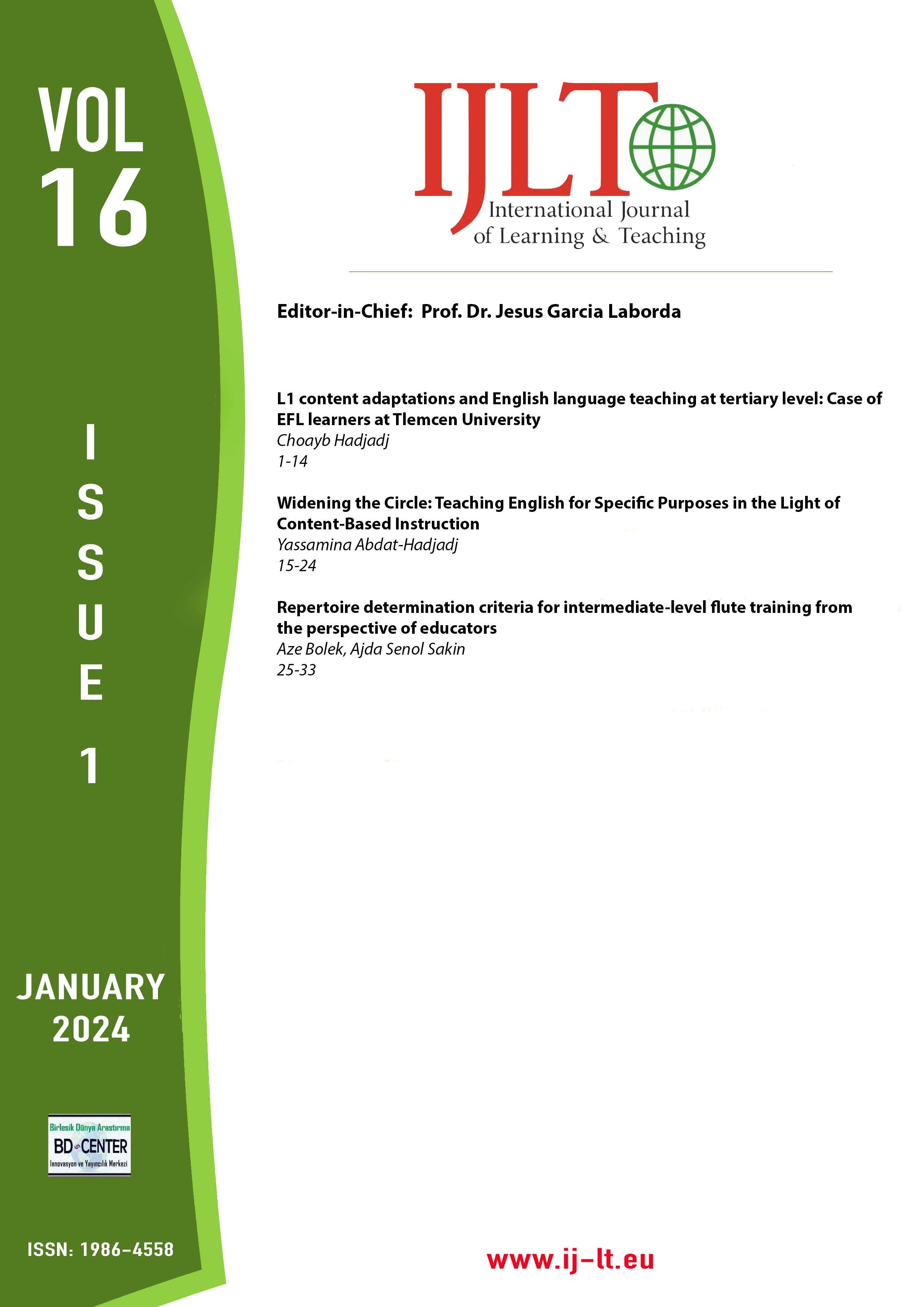L1 content adaptations and English language teaching at tertiary level: Case of EFL learners at Tlemcen University
Main Article Content
Abstract
The Algerian reforms in higher education have shifted from the communicative approach towards the Competency-Based Instruction and the role of the teacher has changed to someone who caters to his learner's needs. On the other hand, the Englishization process of Algerian higher education obliged subject matter teachers in different fields to learn English, which is considered a foreign language in Algeria. This exploratory research paper strives to present the findings of a study measuring the success of English Medium lectures relying on L1 content adaptations. In other words, this study examines the adapted English lectures’ content taught to students belonging to the Department of Political Sciences studying at Tlemcen University, to investigate which changes, if any, accompany the linguistic shift from L1 to English-medium teaching. It takes into account our target population, which is represented by 50 Master One Public Administration students who belong to the University of Tlemcen. Two research instruments were used in this study: an achievement test and a questionnaire. The analysis revealed the learner's good quality output and positive response to the Learning Oriented Assessment (LOA) model.
Keywords: Content adaptations; Englishization; integrated content and language; learning-oriented assessment ; political sciences.
Downloads
Article Details

This work is licensed under a Creative Commons Attribution-NonCommercial-NoDerivatives 4.0 International License.
Authors who publish with this journal agree to the following terms:
- Authors retain copyright and grant the journal right of first publication with the work simultaneously licensed under a Creative Commons Attribution License that allows others to share the work with an acknowledgement of the work's authorship and initial publication in this journal.
- Authors are able to enter into separate, additional contractual arrangements for the non-exclusive distribution of the journal's published version of the work (e.g., post it to an institutional repository or publish it in a book), with an acknowledgement of its initial publication in this journal.
- Authors are permitted and encouraged to post their work online (e.g., in institutional repositories or on their website) prior to and during the submission process, as it can lead to productive exchanges, as well as earlier and greater citation of published work (SeeThe Effect of Open Access).
